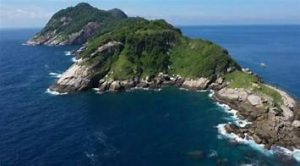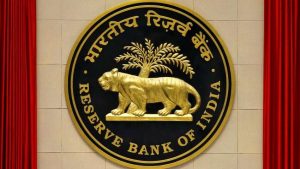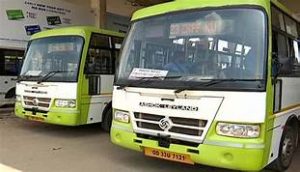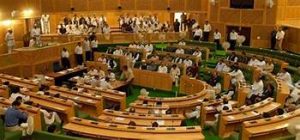Today Current Affairs:25th June 2022 for UPSC IAS exams, State PSC exams, SSC CGL, State SSC, RRB, Railways, Banking Exam & IBPS, etc
Table of Contents
Participatory Notes Dropped To Rs 86,706 Crore Till May-End, 2022:

Investment in the Indian capital markets through Participatory notes (P-notes) dropped to Rs 86,706 crore till May-end, 2022.
- However, according to experts, foreign investors will reverse their selling stance and return to the country’s equities in the coming 1-2 quarters.
- In line with a decline in P-note investment, the assets under the custody of Foreign Portfolio Investors (FPIs) dropped 5% to Rs 48.23 trillion end-May, 2022 from Rs 50.74 trillion end-April,2022.
- This was the eighth consecutive month of net pull-out by FPIs from equities.
Participatory Notes:
- P-notes are Offshore Derivative Instruments (ODIs) issued by registered Foreign Portfolio Investors (FPIs) to overseas investors who wish to be a part of the Indian stock markets without registering themselves directly.
- P-notes have Indian stocks as their underlying assets.
- FPIs are non-residents who invest in Indian securities like shares, government bonds, corporate bonds, etc.
- Though P-note holders have less stringent registration requirements, they have to go through a proper due diligence process of the Security and Exchange Board of India (SEBI).
Reasons for Declining P- Notes:
- There is still uncertainty around inflation levels and the US Federal Reserve’s (Fed’s) actions.
- Decline in P-Notes is being attributed due to the tightening of monetary policy by the US Fed which has been on a rate hiking spree to control inflation.
- Other central banks, including in Britain and the Eurozone, are following suit.
- Currency correction has happened to a large extent.
- A correction is a price rebound which can be observed after every trend impulse. After a correction takes place, the price returns to the trend.
- A correction on the currency market takes place due to the overselling or overbuying of instruments at the current moment in time.
- A large part of this reduction to market correction in equity and debt portfolios.
Snake Island:

Ukraine has caused significant losses to the Russian military in airstrikes on Zmiinyi Island, also known as Snake Island, in the Black Sea.
- The hit on the island is believed to be the second major military success using missiles given to Ukraine by the West.
Snake Island:
- Zmiinyi Island, also known as Snake or Serpent Island, is a small piece of rock less than 700 metres from end to end, that has been described as being X-shaped.
- It is located 35 km from the coast in the Black Sea, to the east of the mouth of the Danube and roughly southwest of the port city of Odessa.
- The Danube is the second longest river in Europe after the Volga.
- It rises in the Black Forest mountains of western Germany and flows for some 2,850 km to its mouth on the Black Sea.
- The island is marked on the map by the tiny village of Bile that is located on it, belongs to Ukraine.
Card On File Tokenisation (CoFT) : RBI

RBI has moved to introduce card-on-file tokenisation (CoFT)
- The word tokenisation refers to the replacement of an actual card number with an alternative code which will be converted into a token.
- It is considered safer as the actual card details are not shared with the merchant during transaction processing.
- Card-on-File: A CoF transaction is a transaction where a cardholder has authorised a merchant to store the cardholder’s Mastercard or Visa payment details e.g. e-commerce companies, and hotels generally do it.
Aircraft Carrier Fujian : China

In June 2022, China launched its third aircraft carrier named ‘Fujian’, the country’s most advanced as well as the first “fully domestically built” naval vessel, as an aggressive Beijing sought to project its naval power in the strategic Indo-Pacific region.
- Fujian is the name of China’s eastern coastal province of Fujian.
- Fujian, in the southeast, is the closest province to Taiwan, a self-ruling province that China says must be reunified with the mainland, even by force.
- China’s first aircraft carrier, the ‘Liaoning’, was a refit of the Soviet-era ship commissioned in 2012 followed by the indigenously built 2nd aircraft carrier ‘Shandong’ in 2019.
- Liaoning and Shandong are names of two provinces of China.
- China plans to have around five aircraft carriers. The next aircraft carrier China plans to build is expected to be nuclear-powered.
Foreign Portfolio Investors:

Foreign portfolio investors have pulled out Rs 42,000 crore this month amid rising inflation and monetary policy tightening in the US.
- FPI involves an investor buying foreign financial assets such as fixed deposits, stocks, and mutual funds.
- All the investments are passively held by the investors.
- Investors see relatively high valuations in India, rising bond yields in the US, an appreciating dollar and concerns regarding the possibility of a recession in the US triggered by a rate hike in the US as the possible reasons for their pullout.
- In India, inflation surged to an eight-year high of 7.79% in April, prompting the RBI to hike the repo rate by 90 basis points to 4.90%.
- India’s foreign exchange reserves have fallen $46 billion in the last nine months to $596.45 billion as of June 2022, mainly due to the dollar appreciation and FPI withdrawals.
- Rupee depreciation may lead to higher import bills: A strong dollar (and weaker rupee) is good for export-oriented companies but bad for import-oriented industries such as oil, gas and chemicals.
- With the dip in the rupee, oil imports and other imported components will get costlier, which will further lead to higher inflation.
- FII moves money from risky assets such as equities and add more bonds and gold. When interest rates rise in the US and other advanced economies, they withdraw money from emerging markets such as India and invest in the bonds in their domestic markets. The 10-year US bond has shot up from a low of 0.54% in July 2020 to over 3.30% now.
- FPIs are the largest non-promoter shareholders in the Indian market and their investment decisions have a huge bearing on the stock prices and overall direction of the market.
- The rupee has continued to depreciate despite the RBI selling dollars from its forex reserve to stabilise the currency.
- The rise in US inflation, rate hike worries and the stock market fall may drive further weakening of the rupee in India.
Guidelines For Prevention Of Misleading Advertisements And Endorsements For Misleading Advertisements, 2022:

The Central Consumer Protection Authority has come up with the Guidelines for Prevention of Misleading Advertisements and Endorsements for Misleading Advertisements, 2022.
- Bait advertising: It means enticing consumers to buy the product at a lower price.
- Computers and other high-tech items are easy to bait and switch because many people don’t understand the technology.
- So, when a salesperson claims that the only difference between this model and the one advertised is that the manufacturers are different, the consumer believes it.
- They are regulated in India.
- They refer to any advertisement that promotes regulated products, like cigarettes and alcohol, in the disguise of another product.
- The guidelines prohibit the use of surrogate advertising.
- Free advertisements: The advertising method that helps brands get free promotion and boost online presence without any high price tags.
- Advertisements targeted at children and youth: The guidelines prohibit the advertisement of such products that will harm kids in any way. The guidelines also prohibit advertisements that can develop a negative image of the body in the minds of the children. E.g Fairness cream etc.
- Advertisements also cannot give the impression that a product is better than the traditional food that children usually consume at home. E.g Maggi, Yippee noodles, etc.
- Penalty (derived from the Consumer Protection Act): It prescribes monetary penalties to the tune of Rs 10 lakh for the first offence, which can go up to Rs 50 lakh for subsequent offences, and imprisonment of up to two years under Section 89 of the Act.
Odisha’s Mo Bus:

Mo Bus, the bus service of Odisha’s Capital Region Urban Transport (CRUT) authority, has been recognised by the United Nations as one of 10 global recipients of its annual Public Service Awards for 2022 – for its role in “promoting gender-responsive public services to achieve the SDGs (Sustainable Development Goals)”
Mo Bus incorporates:
- Real-time technologies like live tracking, travel planner and e-ticketing”
- E-rickshaw system called ‘Mo E-Ride’ has been introduced as a last-mile feeder service.
- Impact:
- 57 per cent of the city’s commuters now use the Mo Bus.
- Mo E-Ride is estimated to reduce pollution by 30-50 per cent.
- 40 per cent of Mo Bus conductors are women and 100 per cent of Mo E-Ride drivers are women, transgender people, and people from disadvantaged communities.
National Import-Export For Yearly Analysis Of Trade (NIRYAT) Portal:

PM inaugurated Vanijya Bhawan and launched the National Import-Export for Yearly Analysis of Trade (NIRYAT) portal
- The portal will also provide a public database on exports from states and will help break down silos and help the industry to take fast decisions.
- It will also ultimately connect the government’s work on one district one export plan.
- From this portal, important information related to more than 30 commodity groups exported to more than 200 countries of the world will be available.
- India’s merchandise exports touched a record $418 billion in 2021-22, led by robust growth in petroleum products, engineering, gems and jewellery, chemicals, and pharmaceuticals, data.
Governor’s Powers To Call For a Floor Test:

In Maharashtra’s political crisis, the Governor’s decision to call for the floor test has been in the spotlight once again.
- Article 174 of the Constitution authorizes the Governor to summon, dissolve and prorogue the state legislative assembly.
- Article 174(2)(b) of the Constitution gives powers to the Governor to dissolve the Assembly on the aid and advice of the cabinet.
- However, the Governor can apply his mind when the advice comes from a Chief Minister whose majority could be in doubt.
- According to Article 175(2), the Governor can summon the House and call for a floor test to prove whether the government has the numbers.
- However, the Governor can exercise the above only as per Article 163 of the Constitution which says that the Governor acts on the aid and advice of the Council of Ministers headed by the Chief Minister.
- When the House is in session, it is the Speaker who can call for a floor test. But when the Assembly is not in session, the Governor’s residuary powers under Article 163 allow him to call for a floor test.
Governor’s Discretionary Power:
- Article 163 (1) essentially limits any discretionary power of the Governor only to cases where the Constitution expressly specifies that the Governor must act on his own and apply an independent mind.
- The Governor can exercise his discretionary power under Article 174, when the chief minister has lost the support of the House and his strength is debatable.
- Generally, when doubts are cast on the chief minister that he has lost the majority, the opposition and the Governor would rally for a floor test.
- On numerous occasions, the courts have also clarified that when the majority of the ruling party is in question, a floor test must be conducted at the earliest available opportunity.
Floor Test:
- It is a term used for the test of the majority. If there are doubts against the Chief Minister (CM) of a State, he/she can be asked to prove the majority in the House.
- In case of a coalition government, the CM may be asked to move a vote of confidence and win a majority.
- In the absence of a clear majority, when there is more than one individual staking claim to form the government, the Governor may call for a special session to see who has the majority to form the government.
- Some legislators may be absent or choose not to vote.
- The numbers are then considered based only on those MLAs who were present to vote.
Bedti-Varada River Interlinking Project:

Environmental groups in Karnataka have criticised the project to link the Bedti and Varada rivers in Karnataka, calling it unscientific and a waste of public money.
- The Bedti-Varada project was envisaged in 1992 to supply drinking water.
- The plan aims to link the Bedti, a river flowing west into the Arabian Sea, with the Varada, a tributary of the Tungabhadra River, which flows into the Krishna, which in turn flows into the Bay of Bengal.
- A massive dam will be erected at Hirevadatti in Gadag district.
- A second dam will be built on the Pattanahalla river at Menasagoda in Sirsi, Uttara Kannada district.
- Both dams will take water to the Varada via tunnels.
- The water will reach Kengre and will then go down a 6.88 km tunnel to Hakkalumane, where it will join the Varada.
- The project thus envisages taking water from the water surplus Sirsi-Yellapura region of Uttara Kannada district to the arid Raichur, Gadag and Koppal districts.
- A total of 302 million cubic metres of water from Pattanahalla and Shalmalahalla tributaries of the Bedti and Varada rivers, while 222 million cubic metres of water will be drawn from the barrage at Suremane built against the Bedti river.
- The Project would need 61 megawatts of power to pull the water all the way to Gadag.
- Even after this, it is unknown whether the water would reach Gadag.
Cooperative Banks:

The Minster of Home Affairs and Cooperation has addressed a conclave, organised by the National Federation of Urban Cooperative Banks and Credit Societies (NAFCUB), emphasising the needed Reforms for Urban Cooperative Banks (UCB).
- The NAFCUB is an Apex Level Promotional body of Urban Cooperative Banks and Credit Societies Ltd. in the Country.
- Its objective is to promote the urban cooperative credit movement and protect the interest of the Sector.
Cooperative Banks:
- It is an institution established on a cooperative basis to deal with the ordinary banking business.
- Cooperative banks are founded by collecting funds through shares, accepting deposits, and granting loans.
- They are Cooperative credit societies where members from a community group together to extend loans to each other, at favorable terms.
- They are registered under the Cooperative Societies Act of the State concerned or the Multi-State Cooperative Societies Act, 2002.
- The Co-operative banks are governed by the,
- Banking Regulations Act, 1949.
- Banking Laws (Co-operative Societies) Act, 1955.
- They are broadly divided into Urban and Rural cooperative banks.
- Features:
- Customer Owned Entities: Co-operative bank members are both customer and owner of the bank.
- Democratic Member Control: These banks are owned and controlled by the members, who democratically elect a board of directors. Members usually have equal voting rights, according to the cooperative principle of “one person, one vote”.
- Profit Allocation: A significant part of the yearly profit, benefits or surplus is usually allocated to constitute reserves and a part of this profit can also be distributed to the co-operative members, with legal and statutory limitations.
- Financial Inclusion: They have played a significant role in the financial inclusion of unbanked rural masses. They provide cheap credit to masses in rural areas.
Glischropus meghalayanus:

Scientists from the Zoological Survey of India have discovered a new species of bamboo-dwelling bat in Ri Bhoi district of Meghalaya.
- The species, found near the forested patch of Nongkhyllem Wildlife Sanctuary, has been named Glischropus meghalayanus.
- The present discovery is the first report of a thick-thumbed bat not only from India but also from South Asia.
- Thick-thumbed bats of the genus Glischropus are currently composed of four recognised species from Southeast Asia.
- The newly discovered species is small in size and has a dark brown colour with sulphur yellow belly.
- Bamboo-dwelling bats are a particular kind of bats living in the internodes of bamboos with specialised morphological characters that help them to adopt to the life inside a bamboo.
- With this new discovery, the total number of bat species known from India stands at 131.
- Meghalaya, a State with a small geographical area, harbours the highest bat diversity in the country with 67 species, which is about 51% of total bat species in the country.
- From the same forested patches outside the Nongkhyllem Wildlife Sanctuary, scientist found another species of disk-footed bat Eudiscopus denticulus which was a new record in India.
Balika Panchayat:

Gujarat becomes first State in the country to launch Balika Panchayat.
- The country’s first-ever girl Panchayat, “Balika Panchayat”, which was started in several villages of Gujarat’s Kutch district, aims to promote the social and political development of the girls and ensure their active participation of girls in politics.
- This is a unique initiative of the Women and Child Development Welfare department of the Gujarat Government under the ‘Beti Bachao Beti Padhao’ campaign.
- It started in Kunaria, Maska, Motagua, and Vadsar villages of the Kutch district.
- The Ministry of Women and Child Development is also planning to begin the girl panchayat across the country.
- “Balika Panchayat” is managed by people in the 11-21 age group and its main objective is to promote the social and political development of the girl child and to remove the evil practices from the society such as child marriage, and the dowry system.
Padma Bridge Project:

The Foreign Ministry of Bangladesh has denied any foreign funding in the construction of the Padma Bridge project. It asserted that the ‘Padma multipurpose bridge has been entirely funded by the government of Bangladesh.’
- It said that some quarters are trying to portray that the bridge which is to be inaugurated by Prime Minister Sheikh Hasina on 25 June has been constructed with foreign funds and is a part of the Belt and Road Initiative (BRI) of China.
- The 6.15 kilometres long Padma Bridge is the largest bridge in Bangladesh.
- The bridge will help connect 19 south-western districts of Bangladesh with the rest of the country.




